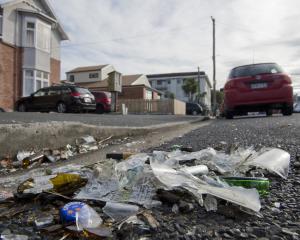
By attaching cameras to children, University of Otago researchers have found they are exposed to 554 brands a day through marketing.
Otago Business School department of marketing research co-leader Associate Prof Leah Watkins said the results highlighted an urgent need to reduce marketing for both personal and planetary health reasons.
Wearable, automatic cameras were given to 90 children, aged 11-13, to provide an unprecedented view of their exposure to marketing over two full days.
The majority of exposure occurred in school (43%), at home (30%) and in-store (12%), and was most commonly seen on brand labels (46%), product packaging (22%) and commercial signs (13%).
Prof Watkins said children lived in a highly commercialised world that "bombarded" them with consumption messages.
She was concerned about the amount of advertising for unhealthy products, compared with social and health food messages.
The links between socio-economic status and exposure to harmful advertising were also concerning, she said.
"This is alarming given the high rates of obesity, alcohol, and gambling harm in socio-economically deprived neighbourhoods.
"It suggests marketing messages may accentuate inequities and place further pressure on those who are already disadvantaged."
Prof Watkins said the results not only raised concerns about marketing’s role in promoting products directly harmful to public health, it also had a role in encouraging overconsumption.
"One of the major threats to planetary health is overconsumption, and the current and continued increases in consumption are unsustainable," she said.
The United Nations has called on member states to reduce the level of commercial marketing; to identify spaces which should be free of marketing (such as schools); and to ensure a wider diversity of pro-social messaging.
Prof Watkins hoped the research would stimulate important discussions about the policies needed to achieve this for the next generation.
She said the research team would continue to investigate children’s exposure to marketing in schools, and a similar pilot study is under way to track children’s online exposure to marketing.












